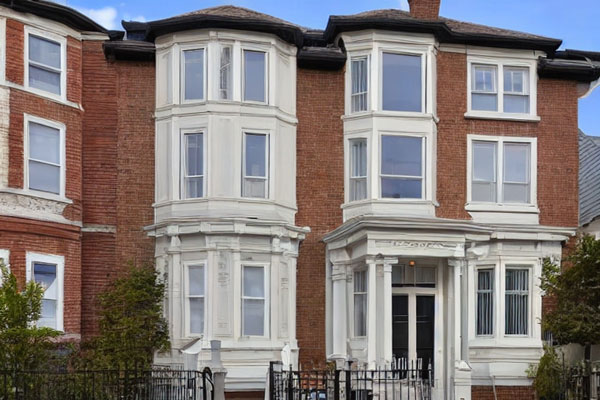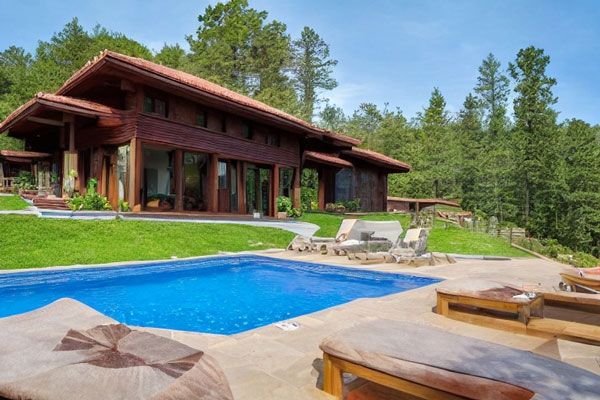|
When it comes to investing in real estate, one of the crucial decisions potential buyers face is whether to opt for newly built properties or turn to the resale market. Both options offer distinct advantages and cater to different preferences and priorities. In this comprehensive exploration, we'll delve into the differences between newly built and resale real estate, uncover the advantages of each, and provide insights into the current trends in the dynamic U.S. real estate market.
Resale Property

| New builds and resale properties differ significantly in various aspects, ranging from construction quality to customization options. Newly built properties, often referred to as "new construction" or "off-plan," are homes that have recently been erected or are currently under construction. On the other hand, resale properties are existing homes that have had previous occupants. New builds offer modern designs, energy-efficient technologies, and the opportunity for buyers to personalize their homes, while resale properties may boast established neighborhoods and unique character.
a new construction (off-plan)

| - a. Modern Design and Amenities: newly built homes often feature contemporary designs and the latest amenities. From open floor plans to energy-efficient appliances, buyers can enjoy a fresh, modern living space.
- b. Customization Opportunities: purchasing a new build allows buyers to customize certain aspects of their homes, from selecting finishes and fixtures to choosing the layout. This level of personalization can be highly appealing.
- c. Warranty Protection: New builds typically come with warranties, providing a safety net for homeowners in case of construction defects or issues with major systems within the first few years of ownership.
- a. Established Neighborhoods: resale properties are often situated in well-established neighborhoods with mature trees, landscaping, and a sense of community. Buyers seeking a more settled environment may find resale homes appealing.
- b. Quicker Move-In Process: unlike newly built homes, resale properties are ready for immediate occupancy. This can be advantageous for buyers who are on a tight timeline or prefer not to wait for construction to complete.
- c. Known Costs and Mature Landscaping: resale homes come with a history, allowing buyers to gauge average utility costs and understand the condition of landscaping, saving both time and potential future expenses.
- a. Energy Efficiency: newly constructed homes often incorporate the latest energy-efficient technologies, resulting in lower utility bills and reduced environmental impact.
- b. Low Maintenance: new builds require less immediate maintenance since all components and systems are brand new. This can be particularly attractive to buyers who want to minimize the hassle of repairs.
- c. Modern Safety Features: many newly built homes include state-of-the-art safety features, such as advanced alarm systems, fire-resistant materials, and the latest in home security technology.
- a. Negotiation Room: resale properties may offer more room for negotiation on the asking price. Motivated sellers or homes that have been on the market for an extended period may provide opportunities for a favorable deal.
- b. Character and History: resale homes often come with unique character and architectural features that have stood the test of time. Buyers who appreciate historical charm may find resale properties more appealing.
- c. Proven Appreciation: resale properties in established neighborhoods may have a proven track record of appreciation over the years, providing a sense of confidence in the property's investment potential.
In the past five years, the U.S. real estate market has experienced a dynamic relationship between newly built and resale properties. Regional variations notwithstanding, recent data reveals a well-balanced distribution between the two categories. According to the National Association of Realtors (NAR) Report as of 2023, approximately 25% of homebuyers opted for newly built homes, while 75% chose resale properties.
Furthermore, the median price for newly built homes stood at $350,000, in contrast to $250,000 for resale homes over the same period. This price differential can be attributed to various factors, including the expenses associated with new construction, the incorporation of modern amenities, and the appeal of a "move-in-ready" home. According to a number of interviewed US real estate agents, These concrete figures highlight the nuanced preferences of homebuyers in the United States and underscore the significant impact of both newly built and resale properties on the real estate landscape.
In the diverse realm of real estate, the choice between newly built and resale properties ultimately depends on individual preferences, priorities, and timelines. Whether drawn to the allure of modern designs and customization options in new builds or the established charm and negotiation potential of resale homes, buyers have a wealth of options to explore in their quest for the perfect property. As the real estate market continues to evolve, understanding the nuances between these two options empowers buyers to make informed decisions that align with their unique lifestyle and investment goals.
|

 companies
companies
 real estate
real estate